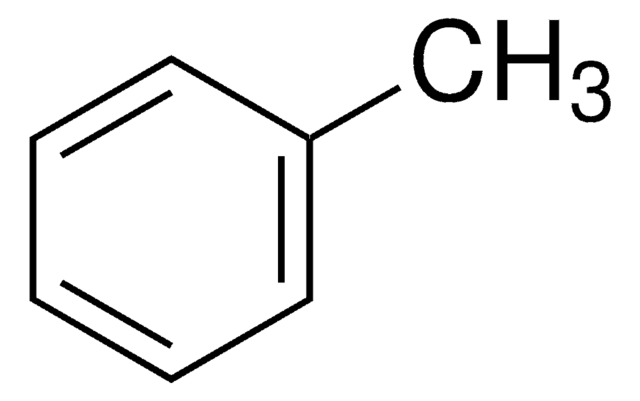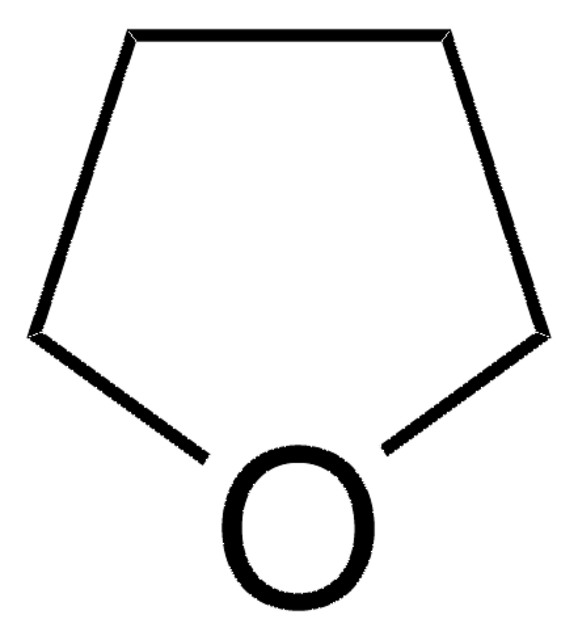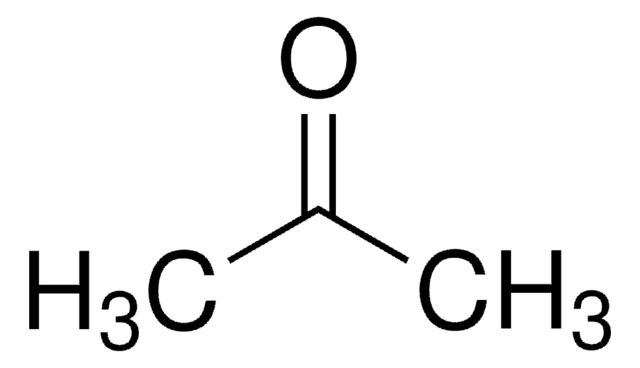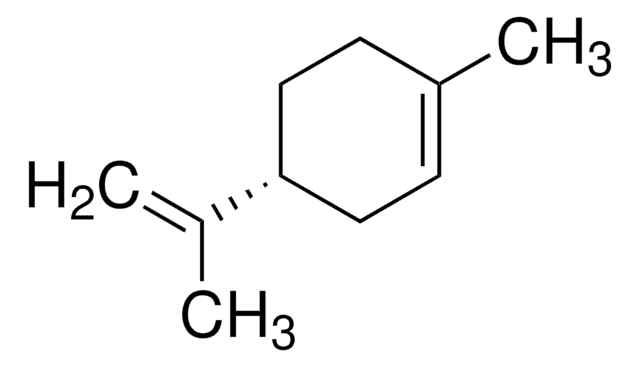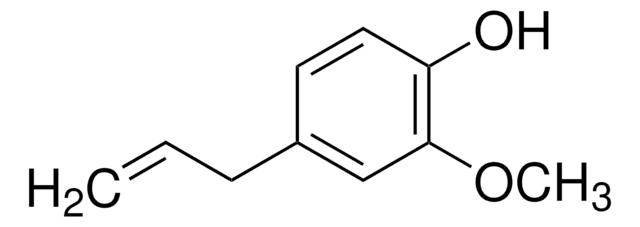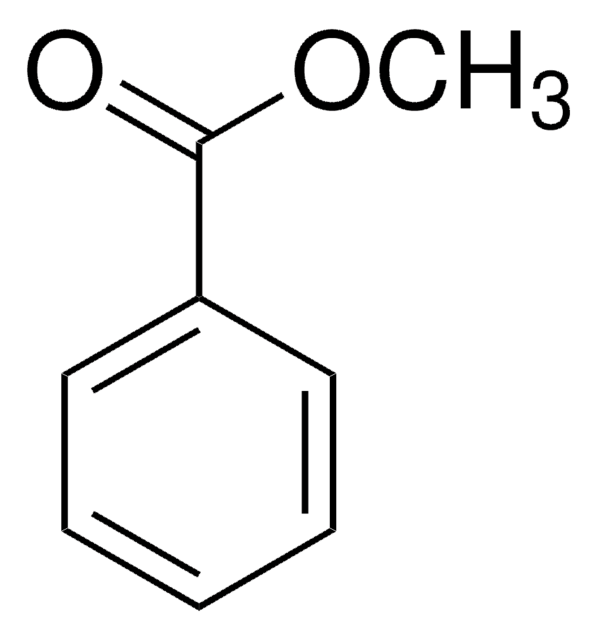296082
Diethyl ether
≥99.7%, anhydrous, contains 1 ppm BHT as inhibitor
Synonym(s):
DEE, Et2O, Ethoxyethane, Ether, Ethyl ether
About This Item
Recommended Products
product name
Diethyl ether, contains 1 ppm BHT as inhibitor, anhydrous, ≥99.7%
grade
anhydrous
Quality Level
vapor density
2.6 (vs air)
vapor pressure
28.66 psi ( 55 °C)
8.56 psi ( 20 °C)
Assay
≥99.7%
form
liquid
autoignition temp.
320 °F
contains
1 ppm BHT as inhibitor
expl. lim.
36.5 %
impurities
<0.003% water
<0.005% water (100 mL pkg)
evapn. residue
<0.0003%
color
colorless
refractive index
n20/D 1.3530 (lit.)
bp
34.6 °C (lit.)
34.6 °C
mp
−116 °C (lit.)
density
0.706 g/mL at 25 °C (lit.)
SMILES string
CCOCC
InChI
1S/C4H10O/c1-3-5-4-2/h3-4H2,1-2H3
InChI key
RTZKZFJDLAIYFH-UHFFFAOYSA-N
Looking for similar products? Visit Product Comparison Guide
Related Categories
General description
Application
Packaging
recommended
related product
suggested gloves for splash protection
Signal Word
Danger
Hazard Statements
Precautionary Statements
Hazard Classifications
Acute Tox. 4 Oral - Flam. Liq. 1 - STOT SE 3
Target Organs
Central nervous system
Supplementary Hazards
WGK
WGK 1
Flash Point(F)
closed cup
Flash Point(C)
closed cup
Personal Protective Equipment
Choose from one of the most recent versions:
Already Own This Product?
Find documentation for the products that you have recently purchased in the Document Library.
Customers Also Viewed
Our team of scientists has experience in all areas of research including Life Science, Material Science, Chemical Synthesis, Chromatography, Analytical and many others.
Contact Technical Service
